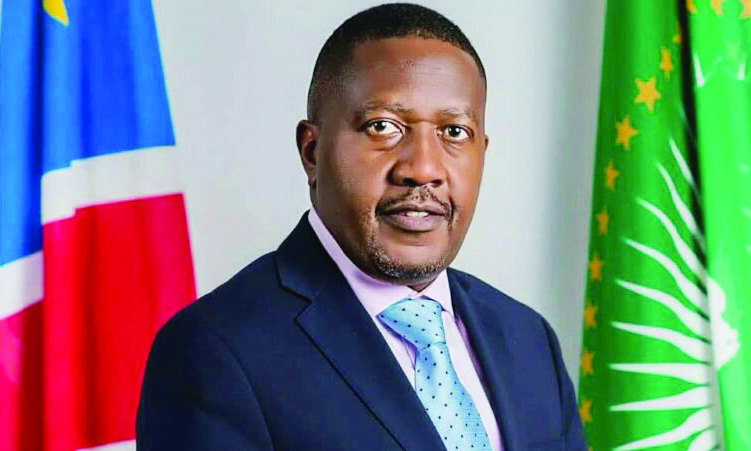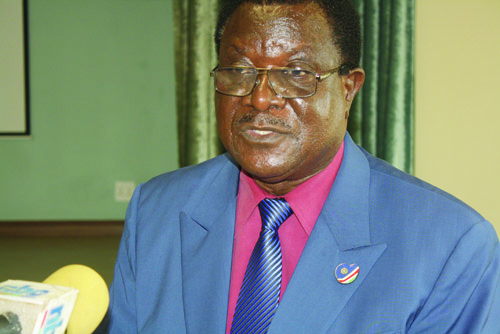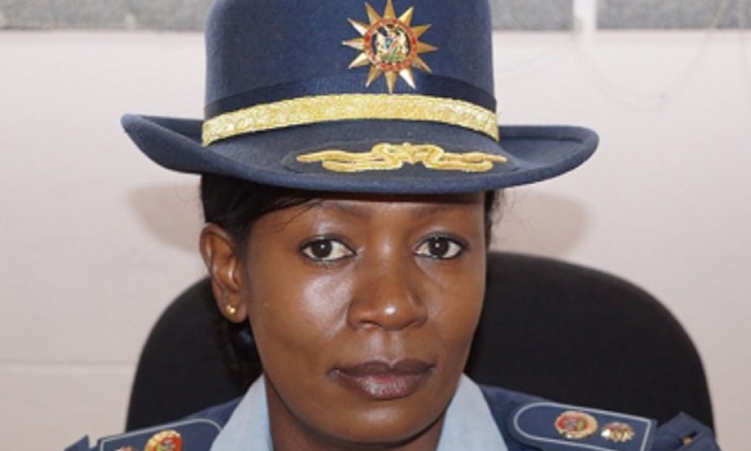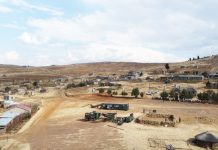By Tracy Tafirenyika | 13 October 2024
At least 25 Namibians have been arrested in Brazil since 2016 for drug trafficking.
These include women who were allegedly offered up to N$40 000 to carry drugs into the south American country.
International relations executive director Penda Naanda says most of the apprehended suspects are women.
“Since 2016, the number of cases involving Namibian nationals arrested for drug trafficking in Brazil is around 25, most of whom are women,” he told The Namibian last week.
Naanda said this increase of drug mules might affect Namibia’s international status.
“We caution Namibians about drug trafficking, because it can lead to us losing our passport status of free visa access to Brazil and it will jeopardise our diplomatic relations,” he said.

Drug traffickers have for years used couriers to swallow drugs using condoms filled with capsules to evade airport security.
Last month, alleged Namibian drug mule Pauline Mbangula (30) was arrested at OR Tambo International Airport in South Africa, after more than 60 bullets of cocaine were discovered in her stomach.
Mbangula was travelling from Brazil.
Her case has brought the debate about how Namibian women are being lured into the drug underworld to the forefront.
In 2016, a 26-year-old Namibian woman was arrested in Brazil after allegedly being found in possession of cocaine worth N$2 million.
The woman, Mesia Antonius, was arrested at Sao Paulo International airport on 9 August.
OMERTÀ
Naanda cited the reluctance of many arrested Namibians to share personal information as a major obstacle to the embassy’s efforts.
“The challenge is that most of the Namibian drug traffickers are reluctant to give out information, as they fear that the information will reach their family members, who are not aware of their whereabouts,” he said.
“When the mission is informed about an arrest of a Namibian national, it has a duty to visit such a national in order to ensure that Namibians are treated fairly and that their rights are respected.
“It is also the duty of the ministry to inform the family members about the arrest of their loved ones, when such is reported to the ministry,” he said.
He said a new extradition or transfer of prisoners agreement between Namibia and Brazil is under consideration.
“Once finalised, the legal instrument could facilitate the extradition or transfer of offenders between the two countries. While the agreement would address diplomatic assistance to arrested nationals, it would not provide legal assistance,” he said.
MORE MONEY, MORE PROBLEMS
Former Namibian ambassador to Brazil Samuel Nuuyoma says most of the suspects are women being lured to smuggle drugs with promises of money.
“They approach girls and promise them a lot of money, N$40 000 to N$80 000, to collect a parcel and most of them, when they hear the amount, they do not even ask themselves questions,” he told The Namibian last week.
According to Nuuyoma, it is not only Namibian girls who face this problem, it is girls from all countries.
“The trick is the same. They are convincing the girls to go for trips and all costs will be paid,” he said.
Nuuyoma added: “I specifically was in touch with Namibians who were in this problem and I interviewed them and engaged with other countries.
“It involves a lot of males from the continent who are convincing these girls, especially those who are beautiful and intelligent,” he said.

COLLABORATION
Brazilian authorities say criminal activities involving Namibians remain low.
“The number of criminal cases involving Namibian nationals in Brazil remains relatively low, compared to other countries on the African continent. It is, however, important that both countries work together to enhance the legal framework for bilateral cooperation in this area, as a way to prevent the increase of illegal activities,” the Brazilian embassy said last week.
The Brazilian embassy said most arrests occur in major Brazilian international ports and airports with connections to the African continent, such as those located in São Paulo and Rio de Janeiro.
According to the Brazilian ministry of justice, by December 2023, all five cases involving Namibian nationals in penitentiary custody were located in the state of São Paulo.
“As of December 2023, five Namibian nationals (3 women and 2 men) remained in detention in Brazilian penitentiary institutions in connection with criminal activities,” the embassy said, adding that bilateral agreements have been presented by Brazil, and are currently under assessment by the Namibian government.
The agreements include bilateral treaties for extradition, transference of persons in detention, cooperation in criminal matters, cooperation in civil matters and cooperation in police matters.
“The embassy of Brazil considers that these agreements would contribute to enhancing the bilateral cooperation in fighting criminal activities and providing better assistance to nationals of both countries in need of legal and judicial assistance,” the embassy said.

PAROLE
Namibian police spokesperson Kauna Shikwambi in 2019 said between 2016 and 2018, five Namibian women aged 30 to 33 were arrested for drug trafficking in Brazil.
According to Shikwambi, the five women were on parole at the time, serving community service in Brazil after completing part of their sentences.
The women were: Denize van Niekerk (arrested in 2016), Charmaine Vries (arrested in 2016) and Rauna Ngesheya (arrested in 2016), and arrested in 2018 are Mathilde Vaisako and Anzel Strauss.
“These women were all recruited in Windhoek to collect parcels of different commodities, such as Brazilian hair, shoes and clothing. On exiting Brazil, they were apprehended at the airport, charged and ultimately sentenced to five years’ imprisonment,” she said.
According to Shikwambi, in most cases, young women fall prey to drug dealers.
“We once again appeal to our young women to be vigilant and not to fall prey to drug dealers,” she said.
Namibian Police major general Anne-Marie Nainda, vying for Interpol vice president in Africa, says she aims to intensify traveller profiling and enhance international cooperation to combat drug trafficking involving Namibian women.
“It is for us to intensify our approach or profiling of any person that is moving in and out of Namibia and to share the necessary information with the destinations they are travelling to and coming from, that is why the issue of collaboration with other countries remains a priority in this context,” she says.
UN EXPLAINER: CONDOMS AND DRUGS
The United Nations Office on Drugs and Crime explained how the drug trade works:
“Many victims of human trafficking are used to ferry drugs across international borders. Known as ‘drug mules’, the victims are made to swallow balloons containing illicit drugs and are then transported across borders. Once they have reached their destination, these balloons are retrieved from the victim’s body.
The balloons are made with multilayered condoms and are often force-fed to the victim. The traffickers use a special machine to open the condom and put drugs into it. On many occasions, the drug mules are first given a soup laced with drugs to numb their throats.
The soup is very oily and makes the balloons slide down their throat. The victim’s mouth can also be sprayed with anesthesia, enabling them to swallow up to 120 balloons. A drug mule may be forced to swallow up to 1kg of illicit drugs and this painful procedure can lead to serious injuries in the throat.
During the journey, they are given medication to inhibit bowel movement. Once they have reached their destination, they are fed laxatives and the balloons pass through their bodies.
This medically dangerous way of transporting drugs can lead, and has led, to the death of persons, if and when balloons rupture within the body. Stomach acids can sometimes cause the rupture of the balloons and death is very quick”.






